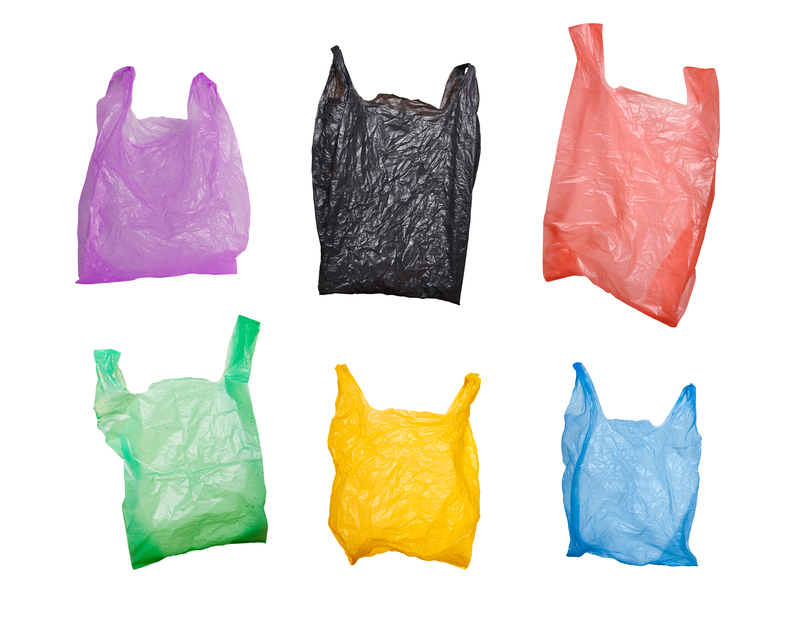Eco-Conscious Solutions for Uncompostable Garden Waste
Posted on 15/02/2025
Gardening is a favorite pastime for many people, offering a therapeutic escape from the hustle and bustle of daily life. However, with gardening comes the responsibility of managing garden waste. While composting is an effective way to handle organic waste, not all garden waste can be composted. Plastic containers, weed matting, and leftover construction materials are examples of uncompostable garden waste that often ends up in landfills.
The negative impact on the environment caused by this uncompostable waste is immense. It takes several years for plastic to decompose, releasing harmful chemicals into the soil and water. Moreover, the space in landfills is limited and can only hold a certain amount of waste before needing to be expanded. As responsible gardeners, it is our duty to find eco-conscious solutions for dealing with uncompostable garden waste.
Here are some tips on how you can manage your uncompostable garden waste in an environmentally-friendly manner:
Tips:
1. Reduce, reuse, recycle: The key to minimizing uncompostable garden waste is to reduce its generation in the first place. Try using compostable materials such as biodegradable pots and plant labels instead of plastic ones. You can also repurpose old containers or jars for planting instead of buying new ones.
2. Utilize alternative materials: Instead of using weed matting made out of plastic, opt for natural alternatives like mulch or cardboard. These options not only decompose over time but also have added benefits for your garden.
3. Separate and recycle: Always separate your recyclable materials from your general waste and dispose of them in their designated bins. This ensures that these materials are recycled properly and don't end up in landfills.
4. Donate or repurpose: If you have leftover construction materials from a garden project, consider donating them to a local community garden or school instead of throwing them away. You can also repurpose these materials for future projects in your own garden.
5. Consider compostable alternatives: With more eco-conscious options available in the market, it's easier than ever to find compostable alternatives for uncompostable waste, such as biodegradable plant pots and seed trays made from renewable resources like bamboo or rice husks.
While there are definitely pros to managing uncompostable garden waste in an environmentally-friendly manner, there are also a few cons to consider.

Pros:
1. Environmental benefits: By finding eco-conscious solutions for uncompostable garden waste, you are significantly reducing your carbon footprint. This results in cleaner air, water, and soil for our planet.
2. Cost-effective: Using sustainable alternatives may initially seem like a larger investment, but in the long run, they save money as they can be reused or recycled multiple times.
3. Educational opportunity: By implementing eco-friendly practices in your garden, you have the opportunity to educate others on the importance of being environmentally conscious and inspire them to do the same.

Cons:
1. Limited availability: Although compostable alternatives are becoming more popular, they may still be harder to find and more expensive compared to traditional non-compostable options.
2. Time-consuming: Managing uncompostable garden waste using sustainable methods may require extra effort and time on your part. Sorting and separating materials may take longer than simply throwing everything away.
3. Requires planning: To effectively manage uncompostable garden waste, proper planning is necessary. This means researching and purchasing compostable alternatives ahead of time, which may not always be feasible for some gardeners.
In conclusion, it is essential that we take responsibility for managing our garden waste in an eco-conscious manner. By following these tips and utilizing sustainable alternatives, we can reduce our impact on the environment while still enjoying our favorite hobby of gardening. Remember, reducing waste starts with each one of us, and every small step counts towards creating a greener and healthier planet for future generations.
Takeaways:
1. Reduce, reuse and recycle: Minimize uncompostable waste by reducing its generation, reusing materials, and recycling whenever possible.
2. Utilize alternative materials: Use natural alternatives like mulch or cardboard instead of plastic weed matting.
3. Separate and recycle: Always separate your recyclable materials from general waste to ensure they are properly recycled.
4. Donate or repurpose: Consider donating or repurposing leftover materials to reduce waste and support your community.
5. Consider compostable alternatives: Opt for sustainable alternatives made from renewable resources, such as biodegradable plant pots and seed trays.
In the end, it is up to each one of us to make a conscious effort towards creating a more sustainable environment. By implementing these eco-conscious solutions for uncompostable garden waste, we can significantly reduce our impact on the environment while still enjoying our love for gardening. Let's do our part in preserving our planet for future generations.
Latest Posts
From Eyesore to Masterpiece: When Garbage Becomes Art
Industry welcomes government's move towards increased e-waste recycling

 020 8610 9486
020 8610 9486










